Behind every glamorous celebrity is the stylist responsible for his or her flawless appearance. There is a rising number of professional makeup artists with a passion for makeup and ambition for success, but only a handful will establish a reputation among the absolutely fabulous. Years of long shifts, late nights and early mornings paid off for Patty Chou (
Chou abandoned her accounting degree in favor of a makeup program offered in Tokyo by Japanese cosmetic giant, Shu Uermura. After graduation she returned to Taipei to work in a wedding studio. One year and 1,000 brides later, she accepted a position with Shu Uermura, where she attracted the attention of the newly launched Taiwan edition of Elle magazine.
As the only in-house makeup artist, Chou gained a name for herself among the top fashion stylists, and before long she landed contracts with record companies and TV stations. Now, more than a decade later, her makeup brush polishes countless Taiwanese idols and earns her an average of NT$50,000 per day.
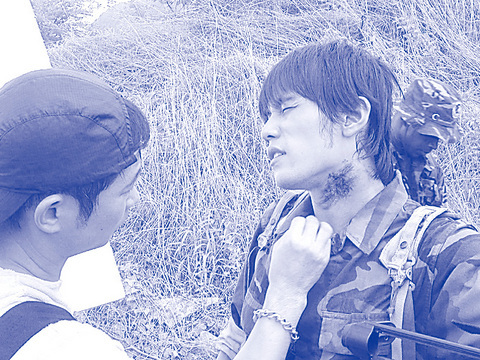
PHOTO: COURTESY OF A DU
Her fame and fortune are not representative of the industry in general. Most makeup artists earn between NT$1000 and NT$2000 per job (day) or remain at department store cosmetics counters making an average NT$200 per hour.
Although the Taiwan cosmetics industry was valued at NT$65 billion last year and experiences a steady five-percent annual growth in makeup sales, the artists still outnumber the available jobs.
"Taiwan is small. There isn't a large enough market for this kind of work here," Chou said, adding that most newcomers take any and every job opportunity that arises.
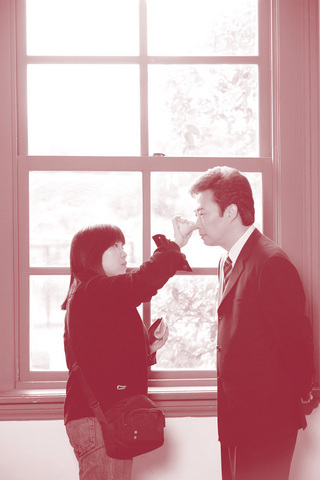
"Of course you need technique, but self promotion and making contacts are equally important. And if you're lucky you get a break," she said.
A Du has made a career out of his lucky breaks. His first came while working as a wedding photographer 17 years ago. Like many newcomers to the beauty industry he had a background in art and an interest in makeup. He gained his experience and initial client list working as an assistant to a stylist who would pass assignments to him. Du's career took a natural turn towards celebrities, specifically musicians, and now most of his work is done for music videos and commercials -- namely, for Jay Chou (
Considering the limited market for makeup artists in Taiwan, stylists must be versatile and ready to work in areas of fashion, music, TV and film. Both Du and Chou agreed that music videos provide the most challenging and entertaining work but favor a diversified portfolio as a way of staying on top.
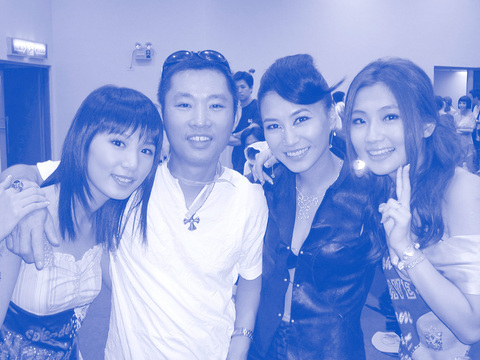
"Sometimes you need to sacrifice a high paying or fun assignment and test your talents in new areas. It's an investment in your career," Du said.
In order to keep up with the latest trends, both stylists take advantage of touring with artists to check out new products and styles abroad.
Working with media magnets, however, isn't always so glamorous. Chou found herself in the public eye last year when her boarding pass was recovered from a musician's hotel bathroom in Hong Kong and was later used as the basis for a rumor that she was sleeping with a member from Taiwanese pop band F4 while the group was on tour.
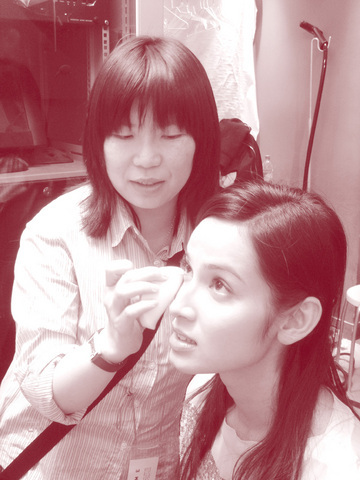
"I spend days with these artists. I know what they do in their free time, and I see them when they first wake up in the morning. I am very careful now. I have to practice discretion, because people [media] are always looking for a story about someone famous, even if it is not true," Chou said.
In addition to their high profile status and income, stylists like Du and Chou can afford to be selective with the jobs they accept, making room for more personal endeavors. Both love their work and said, 15 years into it, they still get excited on a set, even at 5am.
"I love everything about makeup, but now is the time to start thinking about my next move. I'm getting older and I don't want this schedule 10 years from now," Du said.
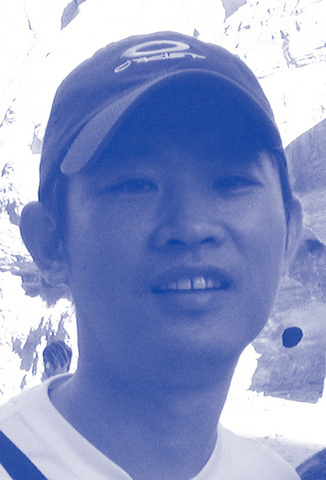
Chou agreed, and both have similar plans to establish their own respective makeup schools and line of cosmetics. While local brands have experienced little success in Taiwan, let alone globally, Du said small steps and celebrity endorsements will help ensure success. With their A-list cliental, both stylists are off to a good start with the necessary contacts.
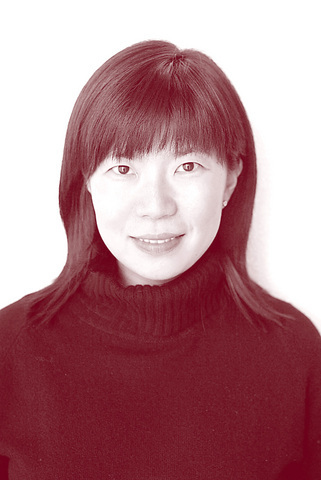

On April 26, The Lancet published a letter from two doctors at Taichung-based China Medical University Hospital (CMUH) warning that “Taiwan’s Health Care System is on the Brink of Collapse.” The authors said that “Years of policy inaction and mismanagement of resources have led to the National Health Insurance system operating under unsustainable conditions.” The pushback was immediate. Errors in the paper were quickly identified and publicized, to discredit the authors (the hospital apologized). CNA reported that CMUH said the letter described Taiwan in 2021 as having 62 nurses per 10,000 people, when the correct number was 78 nurses per 10,000

As we live longer, our risk of cognitive impairment is increasing. How can we delay the onset of symptoms? Do we have to give up every indulgence or can small changes make a difference? We asked neurologists for tips on how to keep our brains healthy for life. TAKE CARE OF YOUR HEALTH “All of the sensible things that apply to bodily health apply to brain health,” says Suzanne O’Sullivan, a consultant in neurology at the National Hospital for Neurology and Neurosurgery in London, and the author of The Age of Diagnosis. “When you’re 20, you can get away with absolute

May 5 to May 11 What started out as friction between Taiwanese students at Taichung First High School and a Japanese head cook escalated dramatically over the first two weeks of May 1927. It began on April 30 when the cook’s wife knew that lotus starch used in that night’s dinner had rat feces in it, but failed to inform staff until the meal was already prepared. The students believed that her silence was intentional, and filed a complaint. The school’s Japanese administrators sided with the cook’s family, dismissing the students as troublemakers and clamping down on their freedoms — with

As Donald Trump’s executive order in March led to the shuttering of Voice of America (VOA) — the global broadcaster whose roots date back to the fight against Nazi propaganda — he quickly attracted support from figures not used to aligning themselves with any US administration. Trump had ordered the US Agency for Global Media, the federal agency that funds VOA and other groups promoting independent journalism overseas, to be “eliminated to the maximum extent consistent with applicable law.” The decision suddenly halted programming in 49 languages to more than 425 million people. In Moscow, Margarita Simonyan, the hardline editor-in-chief of the